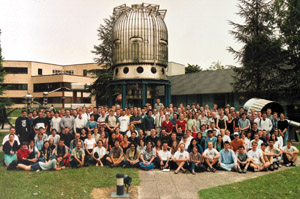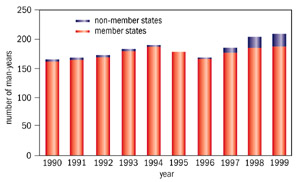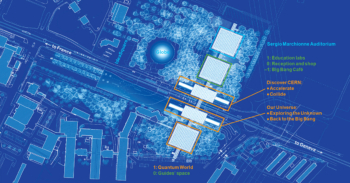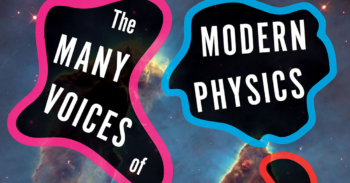Every year, several hundred talented specialists, most of them young, experience working
in CERN’s unique atmosphere. What they learn during this time provides a springboard
for their careers, as well as furthering science and promoting technology exchange
throughout Europe and further afield.

CERN’s major contributions to culture range wider than the discovery of the neutral current of the weak interaction, or the carriers of the weak nuclear force. CERN has shown how international collaboration in science works. Different national attitudes complement and reinforce each other, but this needs to be experienced first.
The vitality of the more than 7000 researchers using CERN’s facilities creates a continuous exchange of ideas and people from all over the world. In addition to the advances in frontier science, the technology needed to carry out this research is often years ahead of what industry can provide.
Every year more than 600 new students, scientists and engineers participate in the various schemes over periods ranging from three months to three years. They all benefit from their experience of working in an international collaboration at the forefront of science and/or technology. Returning to their home institutes, they provide a seedbed for new developments.
A significant fraction (about 10%) of CERN’s personnel budget is spent on various fellow, associate and student programmes. As well as promoting the exchange of knowledge between scientists and engineers from all over the world, these programmes are vital elements in the high-level research and technology training of scientists from CERN’s 20 European member states and, to a lesser extent, from other nations too.
The programmes are popular and there are many applications from eager candidates. Their success is largely due to the strict criteria applied in the selection procedures.
The fellowship programme aims to provide advanced training to young CERN member state university-level postgraduates (mostly with doctorates) in a research or technical domain.
Catering for a different need is the associates programme, which offers opportunities for established scientists and engineers from both member states and elsewhere to spend some time – typically a year – at CERN, on leave from their research, teaching, managerial or administrative duties. During their stay at CERN, associates are on detachment from their home institute.
Students and trainees

Fulfilling another requirement are the various student programmes (summer students, technical students and doctoral students) for undergraduates and postgraduates in CERN member states. Doctoral and technical student programmes are currently restricted to candidates from applied sciences and engineering, but there is a move to extend this.
In the popular summer student programme, with a tradition going back to CERN’s early years, some 150 students selected each year from many times that number of applications participate in CERN’s research programme under the supervision of CERN scientists, and they also attend a series of specially arranged lectures. Many leading scientists have benefited from this scheme early in their careers.
The trainee programme is new. Numerous member states have shown a very strong interest in using CERN as a training ground in a wide area of hi-tech activities. In the past five years there has been a rapid development of special programmes that are based on bilateral co-operation agreements.
Member states Austria, Denmark, Finland, Norway and Sweden provide additional funds for the student programmes, while Israel, a CERN observer state, contributes to the associate programme. For another observer state, Japan, since 1996 part of the interest in the nation’s financial contribution to the construction of the new LHC accelerator has been used to help to fund a few fellows and short-term associates.
Member states Spain and Portugal provide grants that cover the insurance and living costs of the young people specializing in engineering and technology. An additional CERN contribution offsets the relatively high cost of living in the Geneva area.
At a regional level, about 25 young engineers and technicians spend some time at CERN within the framework of a special French Rhone_Alps Region programme. A few graduates and postgraduates from the Italian Piedmont are funded by the regional Association for the Development of Science and Technology. It is hoped that these special programmes will be integrated into the wider schemes and expanded.
Together, the various student and short-term visitor schemes transfer specialized knowledge and expertise, and make CERN’s mission and work in particle physics and further afield known to a wider public.





